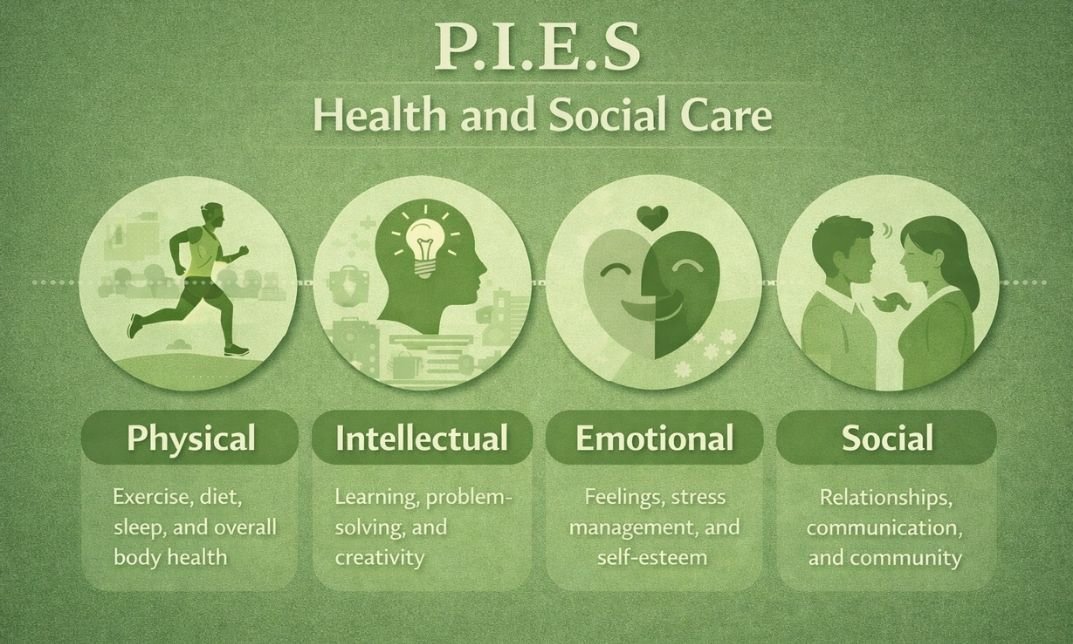Subtotal:
£25.99
Many students ask, what does diversity mean in health and social care, and the answer lies in respecting every individual’s background, beliefs, and needs. The recognition, worth, and inclusion of people with different backgrounds, cultures, abilities, and opinions in hospitals and care services is known as diversity in medical and social care. This builds trust between patients and carers, helping health workers give more personal and respectful care.
This blog talks about the importance of diversity in health and social care, showing its benefits, problems, and useful ways to create a more friendly and fair place for all people.
What Does Diversity Mean in Health and Social Services
Carers must see and respect the beliefs, traditions, and ideas of the people they help. This knowledge helps them give better and more personal care.
Good communication between health workers and patients is very important. But language problems can make this hard. A team that speaks many languages or brings in translators when needed helps include everyone. Understanding what does diversity mean in health and social care helps care workers provide fair, respectful, and personalised support to all people.
A National Health Service (NHS) study says that clear communication is key for safe and happy care. In a country like the UK, where many cultures live, we can’t ignore language differences.
People have different needs. Some may need special help because of their culture, disability, or health problems. A mixed team brings many skills and knowledge to meet these needs.
Problems and Solutions for Diversity in Health and Social Care
Diversity in care has both good and bad sides. Language differences are one big problem and can stop good communication between people and carers. It can also be harder to give personal care because of different beliefs about health and treatment.
Some common problems:
- Care Choices: Some people may prefer carers from a certain background. It’s hard to support diversity while also respecting these choices. Carers need to explain the good things about having different people in the care team.
- Culture Problems: When people from different cultures don’t understand each other, it can lead to the wrong care. Open talking and helping staff understand other cultures can fix this.
- Hiring Workers: To build a diverse team, care groups must work hard to find and bring in workers from many backgrounds and make a friendly place for all.
- Hidden Prejudice: Carers might treat others unfairly without meaning to. Regular training in fairness and respect helps fix this. Special training helps carers see and stop unfair thinking.
- Language Differences: In the UK, where many cultures live, language gaps can cause problems. This can be solved by using translators or teaching workers other languages.
Ways to Improve:
- Teach staff about different religions and cultures.
- Make rules that protect and respect all people.
- Interpreters or translators are used to help solve language problems.
- Give care that fits each person’s needs, wishes, and beliefs.
- Hire staff who show a mix of local people.
- Hold training and events to stop unfair treatment.
How to Support Diversity
When we support diversity, our society becomes fairer, more creative, and more open to new ideas. It helps people see things from different views.
In the UK, supporting diversity in care means giving the best care to people from all backgrounds. Care teams can give better and more friendly help when they see how important this is, fix the problems, and follow good plans to support diversity.

To support diversity in health and care, we need many steps:
Check Often: Keep checking if diversity plans work. Ask patients, staff, and carers for their thoughts to know what should change.
Talk to the Local People: Work with local groups, join events, and ask families and patients for their ideas to build trust.
Make Fair Rules: Write and follow rules that treat all staff and patients with care and respect. These rules should include cultural and language access.
Train Staff All the Time: All workers should keep learning about good talking, understanding others, and how to respect different people. Ask carers to share their own stories to help others understand better.
How Diversity Affects Patient Results
Diversity makes a big change in how well patients do, especially in home care, where people get help in their own homes.
To support diversity in health and care, we must respect the different stories, languages, beliefs, and life experiences of both patients and carers.
This helps give more personal and respectful care. For example, carers can build trust and comfort by knowing about food rules, ways of talking, and social habits. This is very important in home care, where people often rely on carers every day and for friendship.
When carers respect culture, mistakes happen less, trust grows, and care plans fit what patients want. Also, care teams with different backgrounds can solve problems better because they bring many ideas. Studies show that when people feel respected and understood, they are more likely to follow care plans and feel better.
So, supporting diversity doesn’t just make care better—it also helps people feel happy and safe in care.
Conclusion
If you’re wondering what does diversity mean in health and social care, it’s about making sure everyone feels included, valued, and treated equally in care settings. Supporting diversity is an important goal for health and social care because it helps you build strong connections with staff and patients. Workplaces that welcome different people often give better service and have more motivated teams. A mixed care team helps improve how services run.
If you’re ready to take the next step, the Health & Social Care Course from Wise Campus can give you the tools and help you need to reach your full potential.







